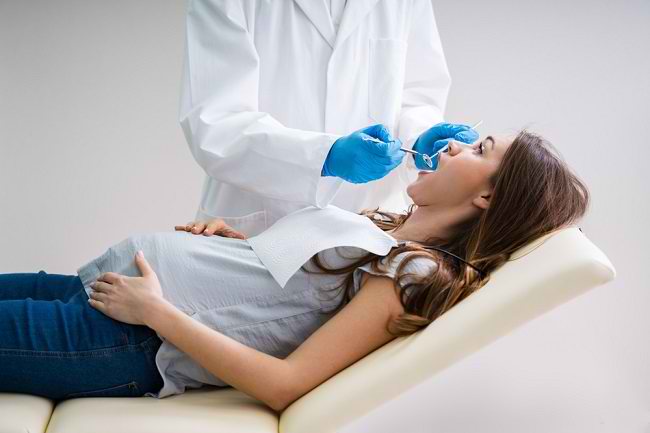Things to Look For When Extracting Teeth When Pregnant
Tooth extraction procedures during pregnancy sometimes need to be done. Especially if the interference on the teeth are very severe and the pain that appears unbearable. However, does extracting teeth during pregnancy risk disrupting the health of the fetus?
The above question is often the reason that makes many pregnant women feel hesitant to take care of their teeth while pregnant. To answer this question, you should first understand when the right time to do tooth extraction during pregnancy.

When Can You Extract Your Teeth During Pregnancy?
Dental care can be done at any time during pregnancy especially treatment in the form of cleaning tartar and dental fillings. However, specifically for severe dental care, such as wisdom teeth extraction (odontectomy), it should only be done at certain times.
If tooth decay is severe enough, cavities are large enough, root of the tooth is infected, or wisdom teeth suddenly sick, the dentist will advise pregnant women to pull their teeth. The right time to do this procedure is in the second trimester of pregnancy, namely in the 14th to the 20th week.
This is because the vital organs of the fetus, such as the heart and brain, have formed in the second trimester . In addition, in the second trimester, the side effects of this action on the fetus are also relatively lower and pregnant women generally do not feel much nausea.
Things to Look For When Extracting Teeth
The most important thing to do when consulting a dentist during pregnancy is to let the doctor know that you are pregnant. That way, doctors can be more careful in determining the drugs and treatments that will be given, including if you have to pull a tooth.
Before you take a tooth extraction, your doctor will often need to do the following procedures:
Dental x-ray
Dental x-ray is needed to determine the diagnosis of a disease and see the position of the teeth in the jaw before tooth extraction. If you are pregnant, this procedure needs to be done with extreme caution.
The radiation generated during X-rays is not large and does not actually harm the developing fetus. Even so, this procedure should be avoided during pregnancy if it is not really necessary.
If dental x-rays are necessary, don't forget to let the laboratory staff know that you are pregnant. You are also advised to ask for radiation protection to cover your body during dental X-rays.
Anesthesia or anesthesia
The anesthetic that is usually needed when dental treatment is local anesthesia. This anesthetic is given only in the problematic area of the tooth, so that the patient remains conscious.
Anesthetics can be given in topical form (ointment, spray, cream, and gel) or injection. Anesthetic drugs that can be used in pregnant women include bupivacaine, lidocaine, mepivacaine. However, these drugs are also only used if the benefits are considered to be greater than the risks.
Before anesthesia, you need to inform the dentist that you are pregnant. That way, the doctor can adjust the type and dosage of the anesthetic used, as well as anticipate the risks that may arise.
Medicines
Before doing tooth extraction, your doctor may give you painkillers or antibiotics to treat toothache, swollen gums, or other dental problems. However, not all drugs are safe for pregnant women. Therefore, tell your doctor that you are pregnant so that the type of medication can be adjusted.
Antibiotics, penicillin, cephalosporin, erythromycin , and clindamycin is a safe drug to take while pregnant.
Whereas tetracycline antibiotics are not recommended for pregnant women because it can cause the baby they are experiencing to experience discoloration of the teeth, especially if the drug is used after 15 weeks of pregnancy.
To be safe, you should regularly check with your dentist since you are planning a pregnancy. That way, if there are cavities or other problems with your teeth, you can overcome them before you get pregnant. So, you don't need to worry about the risk of tooth extraction when you get pregnant again, right?
Written by: . Robbykha Rosalien, M.Sc
(Dentist)
Label : Health
Comments
Post a Comment